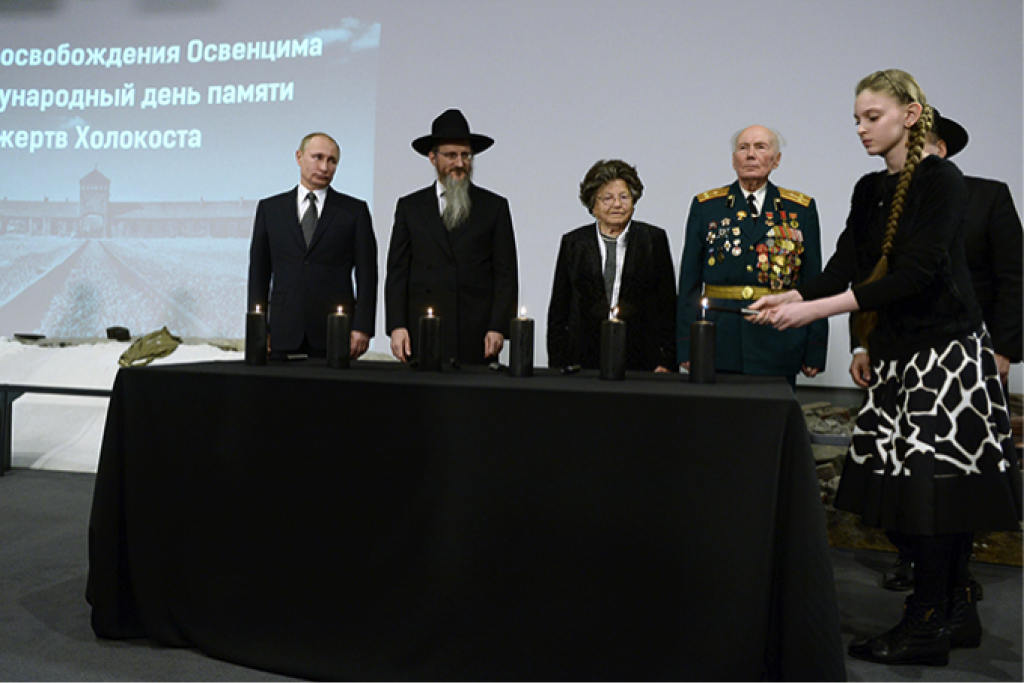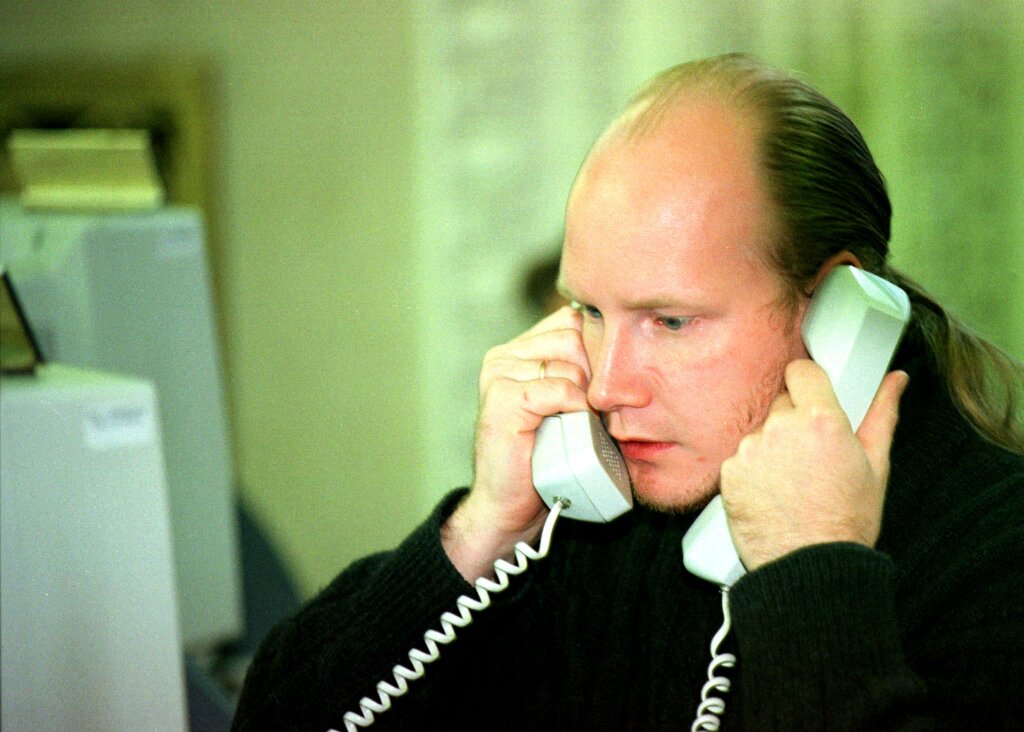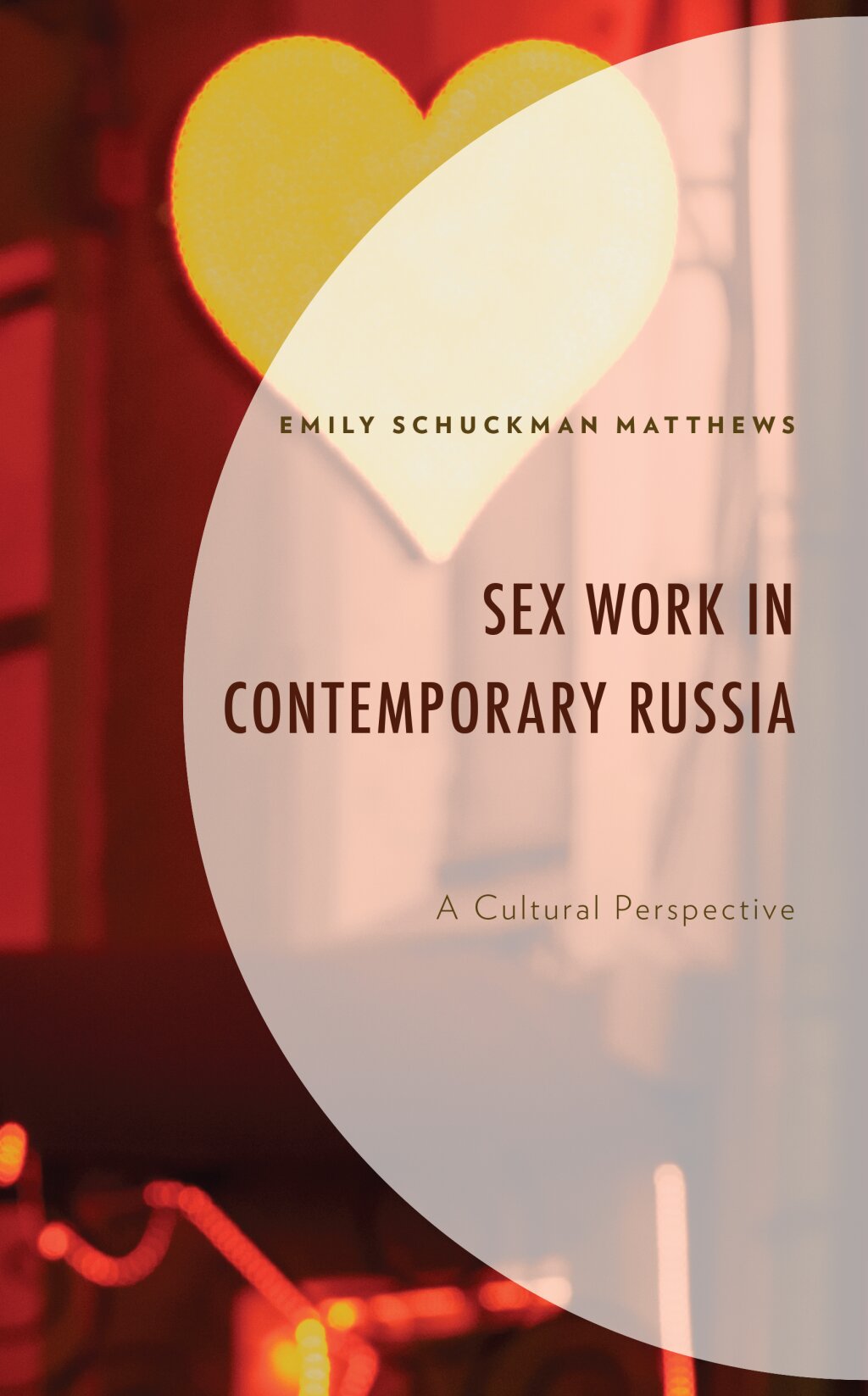Ernest A. Zitser, Ph.D., is the Librarian for Slavic and East European Studies and Adjunct Assistant Professor in the Department of Slavic and Eurasian Studies at Duke University.
This year, as a result of the continuing political tensions between Russia and the European Union over Ukraine, the President of the Russian Federation chose not to join those world leaders who had gathered in Poland, on International Holocaust Memorial Day (27 January), in order to take part in a ceremony commemorating the 70th Anniversary of the liberation of Auschwitz.[1] Instead, President Vladimir Putin visited the Jewish Museum and Tolerance Center in Moscow, where he delivered a televised address, blasting those who would seek to rewrite the history of World War II.[2] As the following brief analysis will demonstrate, the President's speech was targeted less at Holocaust deniers than at political opponents, who dare to dispute post-Soviet Russia's official scenario of power, which privileges its people's tragic, heroic, and, ostensibly, redemptive role in world history.
Like a trained martial artist, President Putin did not exhibit much emotion when he stepped up to podium to deliver his address. He began the bout on the defensive: having just seen a museum exhibit and a documentary movie about the Holocaust, he could not help acknowledging that 6 million Jewish men, women, and children were, indeed, killed by the Nazis. By the end of his speech, however, all mention of the Jews had disappeared from his narrative. The memory of these murdered "citizens of the USSR," who just happened to be "Jews by nationality," had been replaced by the memory of everyone ("all people") who died to stop the murderous aggression of the Nazi war machine.
Among this undifferentiated mass of humanity, the President of Russia singled out two people in particular: the “Russian people,” who represented the majority (70%) of the losses suffered by the Allies that fought against the Nazis and their collaborators; and the “Banderovites,” i.e. the Ukrainian nationalists who had allied themselves against the Soviets and who took an active part in the murder of Jews. This distinction was the first step in the President’s counter-attack, the move from a defensive to an offensive position. He accomplished this judo move in two steps. First, by equating Nazis and their “Banderovite” collaborators with Ukrainians in general; and second, by reminding his audience that “today” is also the anniversary of the lifting of the Siege of Leningrad. By substituting one memory (the Holocaust) by another (the Siege of Leningrad), the President effectively subsumed the “Jewish” tragedy into the broader tragedy faced by the "Russian" people. This substitution also allowed him to equate the Nazi siege and bombing of Soviet (“Russian”) civilians with the “current situation” in eastern Ukraine, when innocent (Russian) people are being besieged and bombed by the government in Kiev. Although he stopped short of calling the current Ukrainian government a bunch of Nazis, the implication was obvious to anyone who follows Russian news coverage of the "aggression" of Ukrainian "Banderovites" against the “People’s Republics” of Luhansk and Donetsk. "Genocide" is just around the horizon, Putin seemed to be saying. I am just trying to stop it. All righteous people--Jews and gentiles--must support me.
One cannot but be impressed with the President’s (or, rather, his speech writer’s) rhetorical skills. But one does not have to take it at face value, much less be convinced by it. Only those who already support the President’s current policies at home and abroad will be willing to accept the rhetorical judo moves described above. Everyone else will do well to remember what this martial artistry is meant to conceal: the shameless way that the President of the Russian Federation attempted to use the memory of 6 million murdered Jews in other to further his own personal (and Russia’s geopolitical) agenda.
Putin may be skilled at judo; his speech-writer may be skilled at rhetoric; but neither of them has any tact or shame.
[1] This personal snub did not prevent President V. V. Putin from sending an official delegation charged with stressing the fact that it was the Soviet Army that had found the bodies of the victims of Nazi policy and had rescued the remaining 7,500 inmates of the Auschwitz extermination camp; and with emphasizing that, of all the Allies, it was the Russian people who had suffered the most, and also had done the most to defeat Nazi Germany. See Lizzie Dearden, "Holocaust Memorial Day: Vladimir Putin not joining world leaders at Auschwitz amid tensions," The Independent (Tuesday 27 January 2015); "Putin: Those who rewrite history attempt to hide own disgrace," RT (published: January 27, 2015; edited: January 28, 2015 09:58).
[2] For the televised address: “«История показывает, какими трагедиями чреваты попытки давления на суверенные государства». Речь Путина к 70-летию освобождения Освенцима,” TVRain (27 января 2015); and "Путин: Претензии на мировое господство могут привести к страшной черте," LifeNews (27.01.2015). On the same day as Putin’s televised address, the Russian Ministry of Defense declassified a set of documents proving that the Soviet army that had liberated Auschwitz was composed of an almost equal number of ethnic Russians and Ukrainians, as well as a number of other nationalities (including Soviet Jews). “Минобороны опубликовало национальный состав освободителей Освенцима,” LifeNews (27.01.2015).



